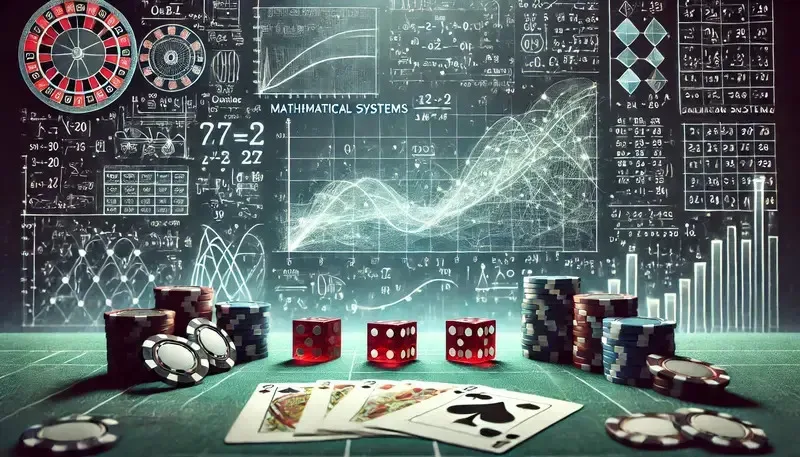Betting Systems and the Mathematical Advantage of Casinos

In the vast world of online gambling, platforms like Point 21 online casino attract countless players with the allure of winning big. Yet, the reality of gambling often hinges on a mathematical principle: the house always has an edge. To understand how this works, it’s essential to explore the role of betting systems and the minds that analyze them, like mathematician Eliot Jacobson.
Who is Mathematician Eliot Jacobson?
Eliot Jacobson is a renowned mathematician and gambling expert known for his extensive research on casino games and betting strategies. With a deep understanding of probability and game theory, Jacobson has dedicated much of his career to analyzing how betting systems function within the framework of casino games. His insights are invaluable to both casino operators and players seeking to understand the true odds behind the games.
Betting Systems and Casino Advantage – Eliot Jacobson
Jacobson’s work focuses on dissecting various betting systems, exposing the inherent flaws and limitations that prevent them from offering a long-term advantage to players. He argues that while some systems may provide short-term wins, they are ultimately unsustainable because of the mathematical advantage held by casinos. This advantage, often referred to as the “house edge,” ensures that casinos will always have a statistical upper hand in the long run.
Betting Law
The principle of betting law states that in games of chance, the outcomes are governed by randomness. Casinos utilize this law by designing games that have built-in probabilities favoring the house. This concept ensures that, over time, the casino will accumulate profit, regardless of individual wins or losses experienced by players. It’s a fundamental aspect of how casinos maintain profitability and why they can afford to offer high payouts on rare winning combinations.

Martingale Betting System
One of the most well-known betting systems is the Martingale strategy. This system involves doubling the bet after every loss, with the idea that a win will eventually occur and cover all previous losses plus a profit. While theoretically sound, the Martingale system fails in practice because it requires an infinite bankroll and unlimited betting limits. Casinos impose betting limits precisely to counteract such strategies, ensuring that the house advantage remains intact.
Parlay Betting System
The Parlay system, another popular strategy, encourages players to reinvest their winnings from one bet into the next. This method aims to maximize profit by leveraging winning streaks. However, like the Martingale, it carries significant risk. A single loss can wipe out all accumulated winnings. While Parlay might work for short-term gains, it does not change the underlying odds or the house edge, which ultimately leads to inevitable losses.
So, Do Betting Systems Work in Casinos?
In conclusion, while betting systems like Martingale and Parlay offer structured approaches to gambling, they do not alter the fundamental odds of casino games. Eliot Jacobson’s research highlights that the house edge is a mathematical certainty, ensuring that casinos profit over time. Players might experience temporary success with various strategies, but in the long run, the casino’s advantage prevails. Thus, while betting systems can add excitement and a semblance of control, they cannot overcome the mathematical advantage that casinos hold.
